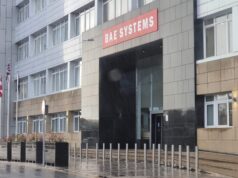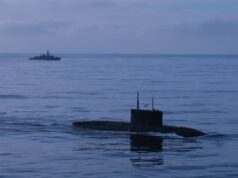Recently disclosed Freedom of Information documents have shed light on how Scottish Government ministers were briefed about the importance of the UK’s defence work to Scotland ahead of the steel-cutting ceremony for HMS Sheffield, the fifth Type 26 frigate.
The exchanges reveal the government’s emphasis on the significant economic and strategic contributions of the Clyde shipyards to both Scotland and the wider UK, as well as the logistical and political considerations surrounding ministerial attendance.
The briefing materials underscored the role of Scotland’s shipbuilding sector in supporting the UK’s defence capabilities and economic prosperity. The Type 26 programme alone, valued at £8 billion, supports over 1,700 skilled jobs in Glasgow and an additional 2,300 roles across the UK supply chain.
In an email dated 4 November 2024, one official noted the programme’s importance:
“The Type 26 programme is worth nearly £8 billion, supporting over 1,700 high-skilled jobs in Govan and Scotstoun and further 2,300 jobs across the wider UK supply chain.”
Officials also highlighted the international success of the Type 26 design, which has been adopted by Australia and Canada, describing it as “an international export success story.”
Ministers were briefed to recognise the strategic importance of BAE Systems’ investment in Scotland, with one official noting:
“BAE Systems has made significant investments into their activities in Scotland – most recently, they opened a £12m Skills Academy at Scotstoun – part of a wider £300m investment plan for modernisation and digitalisation of their Govan and Scotstoun shipyards over the next five years.”
The correspondence reveals deliberations over ministerial attendance at the ceremony, which took place on 28 November 2024. The First Minister, Deputy First Minister, and Cabinet Secretary for Finance and Local Government were all invited but were unable to attend due to prior commitments.
In their place, the Minister for Business, Richard Lochhead, was selected to represent the Scottish Government. In an email exchange dated 7 November 2024, an official wrote:
“The Deputy First Minister (DFM) is already committed to co-hosting the France Office’s St Andrew’s Day trade and investment reception at the British Embassy in Paris on Thursday 28 November, so will be out of the country and unable to attend. Mr Lochhead will be in Glasgow speaking at a conference that morning, potentially he could travel to Govan if SpAds suggest that he could cover.”
The email also highlighted logistical challenges in ensuring ministerial representation:
“The Minister is already giving a speech in Glasgow (at the Technology and Innovation Centre) that morning but this won’t finish until 10:00/10:15 so we wouldn’t get to the yard until closer to 10:45.”
Ultimately, Mr Lochhead attended the ceremony.
The briefing also reflected concerns about potential protests at the event, linked to broader tensions surrounding defence work. Officials flagged the possibility of disruption, noting:
“The current upsurge in violence in the Middle East has seen defence companies subjected to multiple instances of protest activity, and BAE Systems have all been experienced multiple blockades of the shipyard entrance by pro-Palestinian protestors over the last year.”
Despite the potential for controversy, the event was described as a “closed event” with assurances about security.
The briefings highlight the delicate position of the Scottish Government, which must balance its support for industries tied to the UK’s defence framework with its broader political ambitions relating to independence. The materials emphasise the economic benefits of defence work while acknowledging sensitivities surrounding the ethical implications of defence manufacturing.
An official summarised the Scottish Government’s approach to supporting defence companies:
“The Scottish Government does provide support to companies that operate, either partially or wholly, in defence markets, through its enterprise agencies. These companies play a key role in both our own sovereign defence, and those of our allies, including in Ukraine.”
However, the same email reaffirmed the government’s broader policy goals, stating:
“Support provided is, instead, focused on encouraging companies to diversify their activities and technologies and ensure Scotland continues to benefit from significant economic returns and thousands of high-skilled jobs.”













Not the best idea for any city to build its economy on the vagaries of ship building, for over a century cities like Glasgow paid a heavy price. Ship building has always been boom and bust. Now with the government opening a third yard on a budget that won’t support two either Glasgow, Belfast or Dunfermline is going to get hammered at some point. Thousands of young people will be lured into apprenticeships only to find there is no use for their skills in 10 years.
Meanwhile London continues to make nothing and benefits from the highest wages in the country.